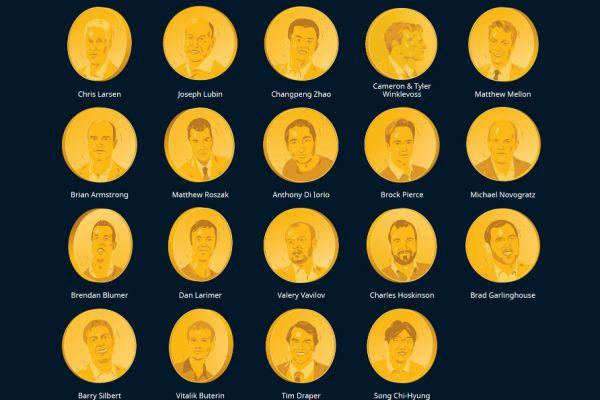Forbes List of Richest People in Crypto: What Decentralization?
On Tuesday, Forbes published their first ever list of 20 richest people in cryptocurrency.
In the editor’s letter, written by Forbes Editor Randall Lane and to be published in the Feb 28, 2018 issue, he explains the motive beneath assembling this list. The reason is simple, according to them: “Our list provides a snapshot of a pivotal moment, part of the transparency needed to pull crypto away from its provenance as the favorite currency of drug dealers and into the adolescence of a legitimate asset class.”
So, who are they? Statistically speaking, mostly white men – a whopping 90% of them, or 18 out of 20. The remaining 10% are Asians, a total of two people. Women are nowhere to be seen. This can be seen through a list of who owns the most bitcoin shares.
What this list shows us is that to make big money investing, you have to own big money already, more often than not. The richest crypto person on this list is Chris Larsen of Ripple, dubbed a “serial entrepreneur” by the Forbes introduction article. He was known as an angel investor (an affluent individual who provides capital for a business start-up) long before Ripple came along. Matthew Melon, sixth in the list, is heir to one of America’s great banking fortunes and a former chair of the New York Republican Party’s finance committee. It doesn’t end there – the majority on this list were well-off before crypto came along.
The implications this has on cryptocurrency and its decentralized nature are worrying; the fact that the biggest crypto holders are white men may be a given in the earlier days of crypto, when Northern Americans and Europeans had the best opportunities to get their hands on it. Less developed countries tagged along, but perhaps too late.
Does everyone have the opportunity to become part of the crypto industry? Ideally, yes, and hopefully in a much simpler way in the future. Does that mean that anyone can become the richest person in the world? Probably not.
The reality is, not everyone is starting from the same point. Some people live in developed, technologically advanced countries with progressive viewpoints. Some can afford mining hardware and/or throwing some money into an initial coin offering (ICO) or two. Others don’t have their work quite cut out for them. This is in no way meant to belittle the efforts of the people who have risen to the top – they have worked hard and put in many sweat-soaked hours into building their companies. The fact is, someone from a less privileged background would’ve had to put in a hundred times more.
Once or twice, an inspirational story about people who made it against all odds in crypto reaches us and we hail them, draw inspiration from them and use them as an example that it is possible to succeed. However, those are the outliers, the minority, and crypto still has a long way to go until it truly crosses borders and is available to everyone, as equally as it can hope to get, thus fulfilling its dream of being a currency of the people, for the people.
P.S. In theory, it is more than possible, even probable, that there are some even richer investors than these found by Forbes, except we don’t know who they are due to the nature of the industry – we never did learn the identity of Satoshi Nakamoto, the inventor of Bitcoin, after all.





